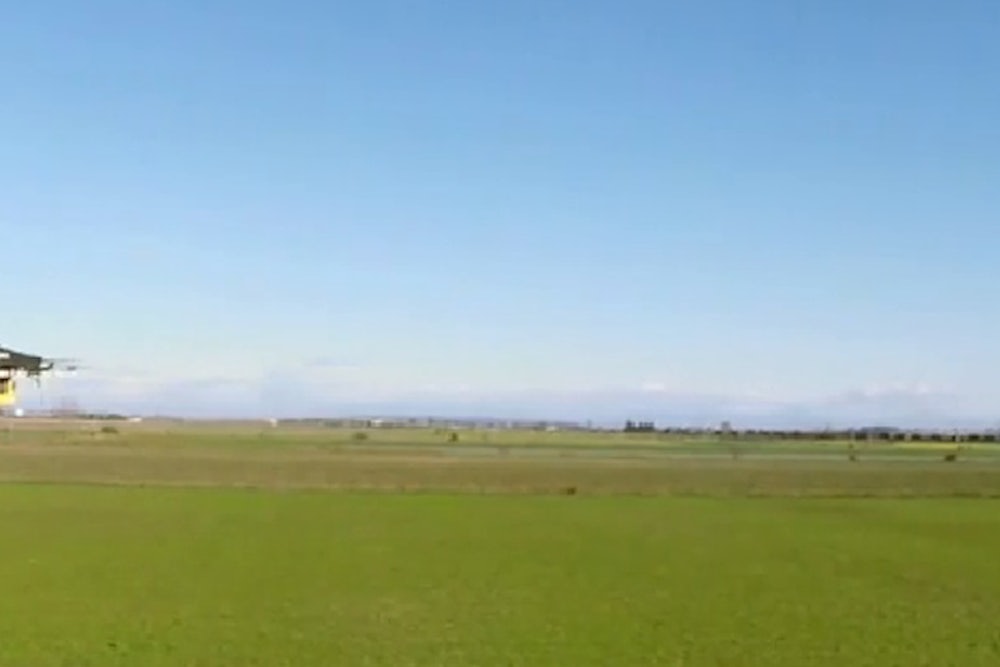Over the Thanksgiving holiday, my mother told a story about my grandmother's college days. She went to school in Washington, D.C., but she sent her laundry back to her parents in Cleveland. She'd put it on a train, and it'd be back to her in no more than a couple of days—the train service was that frequent and efficient. This was the late 1920s or early 1930s.
I thought about this story when I read the news that yesterday, Amazon's CEO Jeff Bezos announced the company's intention to build a fleet of drones that would be able to deliver goods to the customer's door a mere thirty minutes after she orders. This is in no way compliant with current FAA regulations, but the company's official announcement says somewhat muscularly that they are waiting for those to be updated, and as soon as they are, the drones will be in the air. This can't happen for a few years at least, and so in publicizing it now, Amazon is mostly sending a signal about the kind of company it wants to be. Of the big four tech companies, Amazon is the one that most clearly has a foot in both the digital and physical worlds, the old and new ways of doing business. What this move indicates is that Amazon wants even the old-fashioned aspects of its business—delivering goods—to be as new-fashioned as possible. That might be a good thing for Amazon (or not, says Matt Yglesias) and for impatient customers, but it's not a good thing for the rest of us.
When my grandmother was sending her laundry back to Cleveland, the infrastructure that allowed her to do that was so good in part because so many manufactured products were being moved cross-country via train. The demands of industry, at least in that instance, had the nice side effect of benefiting regular people. American infrastructure generally isn't in great shape these days. Yesterday's deadly train derailment in the Bronx was a searing reminder of that.
Amazon's drones are meant to solve the so-called "last mile" problem, and it's not necessarily one that's created by aging highways and crumbling bridges. But in opting for drones, Amazon is saying that it doesn't want to work within the current system, it wants to make a new one. It's difficult to see any side effects coming out of this one that would benefit regular people. (For one thing, this probably would mean the elimination of some jobs for humans.) It's possible, I suppose, that getting airspace regulated for more and more drones will be a thing we'll want, or maybe the monitoring required will result in technological leaps and important digital investments by the FAA. But the drones look loud and annoying to me. And what they definitely don't do is place pressure on the government from a big American company to improve the country's underlying transportation structure, because the drones say that Amazon is willing to go around that problem. Instead, as they say in Silicon Valley without thinking much of the casual destruction the word implies, it will "disrupt" it.
